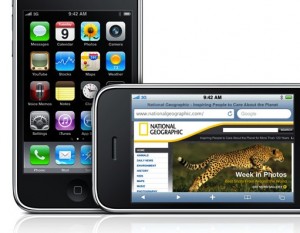I was sitting among 90,000 people at an AC/DC concert on Thursday when news broke that Apple’s Phil Schiller had responded to media reports saying Apple had censored a dictionary in order for it to be included in the App Store.  Not being in the middle of the “news game” for several hours gave me some time to think about the original report and about the clarification that Schiller gave. In between “Back In Black” and “Highway to Hell,” I wondered if the media had been unfair to Apple over the past year with its handling of the App Store.
Not being in the middle of the “news game” for several hours gave me some time to think about the original report and about the clarification that Schiller gave. In between “Back In Black” and “Highway to Hell,” I wondered if the media had been unfair to Apple over the past year with its handling of the App Store.
I am far from innocent in this whole matter. I’ve blasted Apple over its handling of apps, showing my frustration with the way the company flip-flops on approving apps and then pulling them from the store. But it could be that there is more to it than we first see.
Take Ninjawords as an example. On Wednesday media outlets around the world reported that Apple had told the developer to remove objectionable words from the app before it would be accepted.
Even though that turned out to be untrue, we all believed it. This is certainly part of the problem — we took that story at face value because of Apple’s past history in dealing with app developers. Rejecting apps for seemingly no good reason or removing apps with no explanation.
With 65,000 apps in the store, all we seem to focus on are the few that get rejected.
I’m not giving Apple a free pass here, merely wondering if, perhaps, there are reasons that some of the other apps have been rejected.
Ultimately, it’s Apple’s responsibility to keep the developers informed on their policies and they certainly haven’t done that very well. If Ninjawords teaches us anything, it should be that there are always two sides to every story.
